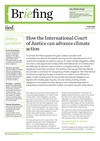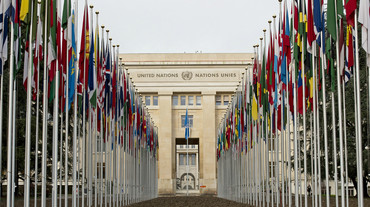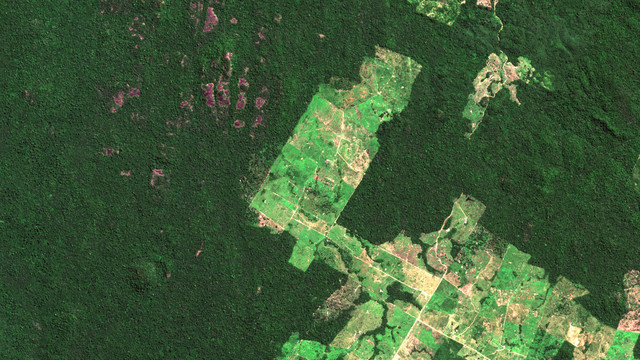ICJ should address legal contradictions holding back action on climate change
International investment treaties can deter governments from fulfilling human rights duty to slash emissions.
The International Court of Justice (ICJ) needs to address the legal contradictions that are holding back action on climate change when it rules on the legal obligations of states to avoid environmental harm next year, according to IIED.
Governments have until 22 January, 2024 to make submissions to the court after the UN General Assembly asked the ICJ to hand down an advisory opinion.
Vanuatu led the push for this resolution, which pointed to a range of sources the court could use including customary international law, the international covenant on economic, social and cultural rights, the Paris Agreement, and the UN Convention on the Law of the Sea.
But instruments known as investor-state dispute settlement (ISDS) tribunals can make it more difficult for countries to take action on climate change, because they protect the interests of businesses when governments seek to change policy. Fossil fuel companies are prolific users of these provisions, such as those in the Energy Charter Treaty.
In 'How the International Court of Justice can advance climate action', researchers set out why the ICJ should provide guidance on interpreting investment treaties in the light of climate obligations in any ruling it gives that states have a duty to act on the climate crisis.
Camilla More, an IIED climate change researcher who works closely with the Least Developed Countries Group at the UN, said: “We’re tackling the climate emergency too slowly, and some of the reasons are obvious. Investment treaties, though, are not always widely known about despite the very real problems they cause governments trying to transition away from fossil fuels.
“Individuals, especially young people, are increasingly looking to the courts for leadership on this crisis. Deep reform is needed to align investment treaties with the Paris Agreement goals and in delivering its opinion on climate obligations, the ICJ has an important role to play in getting this started.”
The UN’s Human Rights Council has said repeatedly that climate change adversely impacts the effective enjoyment of human rights, including the right to life, food, health, housing, self-determination, safe drinking water and sanitation, and development.
Similar sentiments have formed part of judicial rulings in Australia, Colombia, the Netherlands and the United States in recent years, showing that the climate crisis is not outside the purview of the courts. Recently a judge in Montana ruled that young people have a fundamental right to a “safe and stable” climate.
Two longstanding international declarations, from Stockholm in 1972 and Rio in 1992, show governments have the responsibility to ensure that activities within their jurisdiction or control do not cause damage to the environment of other states or of areas beyond the limits of national jurisdiction.
Though these declarations did not directly establish a legal duty, over time the principle has been affirmed by judges as an obligation in environmental law.
A number of trade agreements affirm countries’ commitment to implementing the Paris Agreement, and the UN has guiding principles for businesses including the fossil fuel sector that say companies should respect human rights.
However, cutting the emissions driving climate change may require governments to restrict or ban carbon-intensive activity, which might trigger ISDS claims, an investment treaty system that serves to protect businesses’ interests and can – as the IPCC has noted – constrain a country’s ability to take action on the climate crisis.
IIED believes the ICJ must take account of these contradictions and rule in a way that ensures international law is aligned with climate goals.
Notes to editors
The briefing 'How the International Court of Justice can advance climate action' was written by Camilla More and Lorenzo Cotula.
For more background on ISDS, read IIED’s 2020 report on the subject.
For more information or to request an interview, contact Simon Cullen:
+44 7503 643332 or simon.cullen@iied.org





